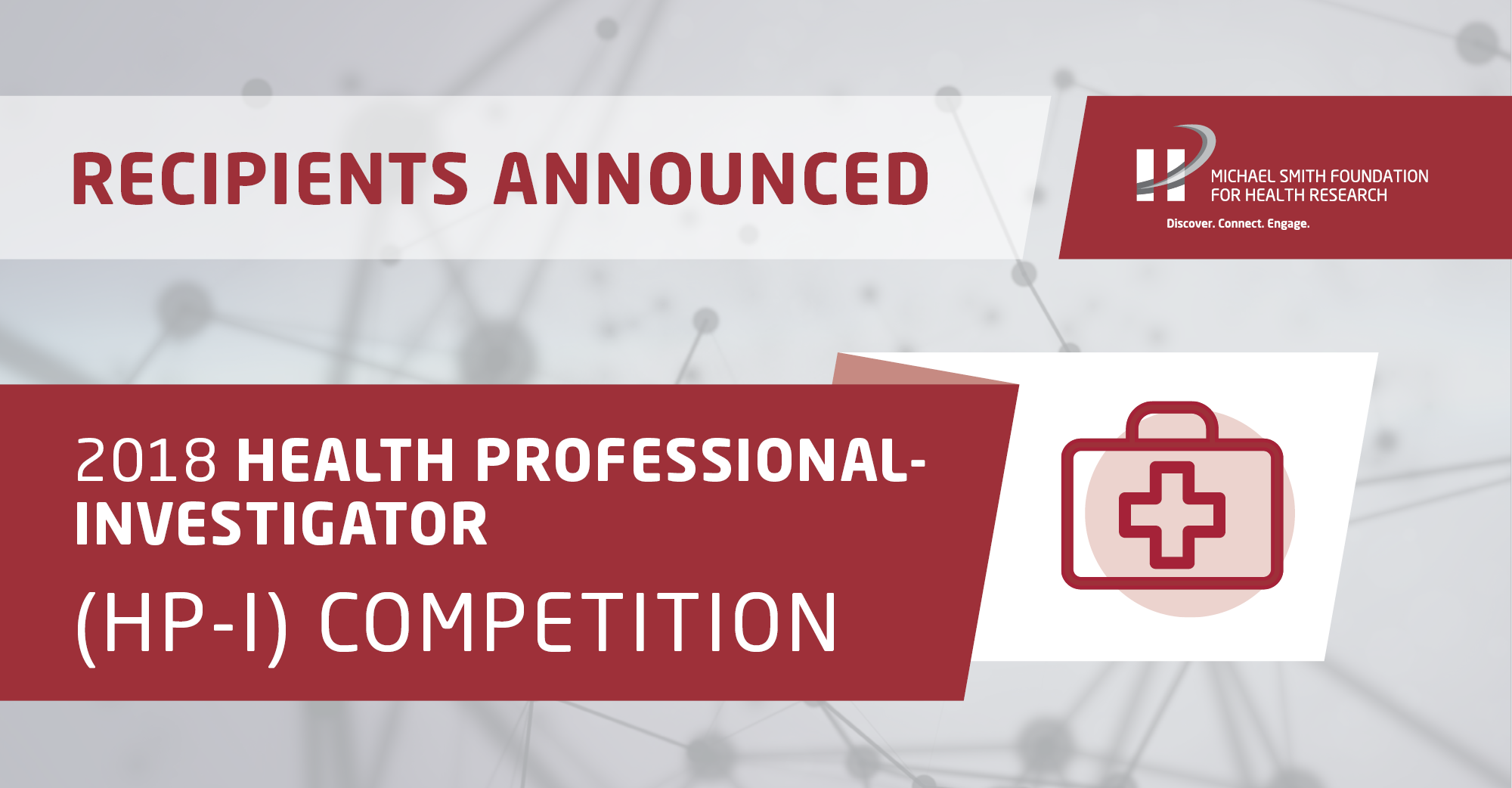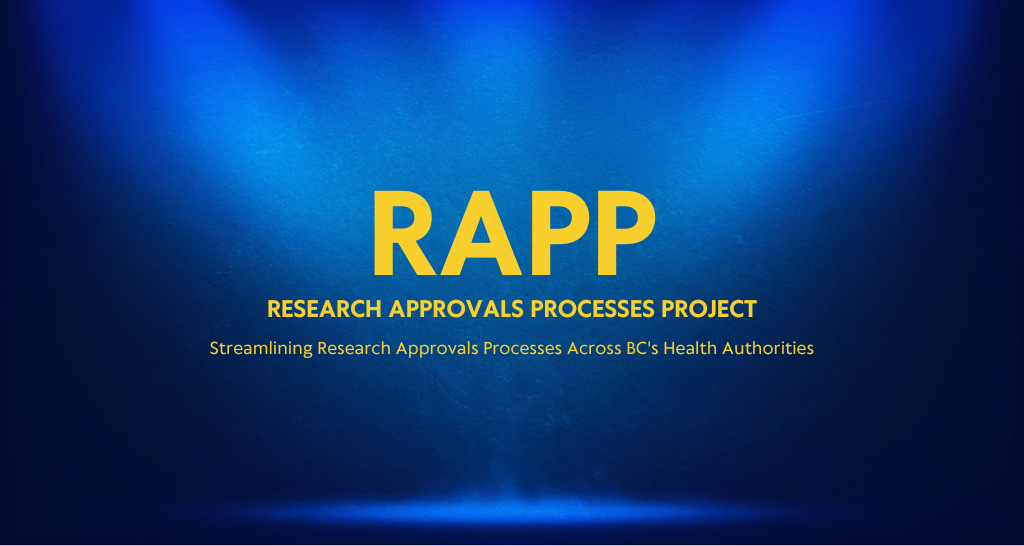12 BC health professionals to use clinical expertise to answer burning research questions
8 May 2018

MSFHR’s HP-I Program is designed to develop BC’s research talent and help decrease the gap between health research and its implementation by supporting health professionals who are actively involved in patient care to conduct and apply research relevant to health and/or the health system.
The 12 HP-I award recipients include a nurse, a psychologist and physicians specializing in cancer, stroke, asthma and HIV. In addition to their roles as health professionals, these awardees will conduct research intended to improve patient health outcomes – from testing a hand-held breast cancer imaging tool, to exploring how to identify which HIV patients are most likely to benefit from adherence support via text message.
This year, MSFHR is delighted to be co-funding two HP-I awards, one with Providence Health Care Research Institute, and one with Vancouver Coastal Health Research Institute and VGH + UBC Hospital Foundation. These partnerships allow us to fund a greater number of BC researchers and provide an opportunity for partnering organizations to advance research in their areas of interest.
“The purpose of the Health Professional-Investigator Program is to help clinicians with an intimate understanding of patient care, apply their clinical knowledge in a research setting to answer questions straight from the bedside,” says Dr. Bev Holmes, President & CEO. “We are now in the second year of the program and have been very impressed with the calibre of the researchers and the scope of the work they are undertaking. We are looking forward to the impact these translational research projects will have in helping to improve the health of British Columbians.”
The HP-I Program was developed in response to consultations with stakeholders across the province who identified a need to help health professionals apply their practical expertise to fill research gaps. Each award recipient will receive a salary contribution to help them protect time for research for up to five years, or support research personnel directly associated with their work.
- Find out more about MSFHR’s HP-I Program
- Interested in co-funding an MSFHR award? Visit our prospective partner pages





